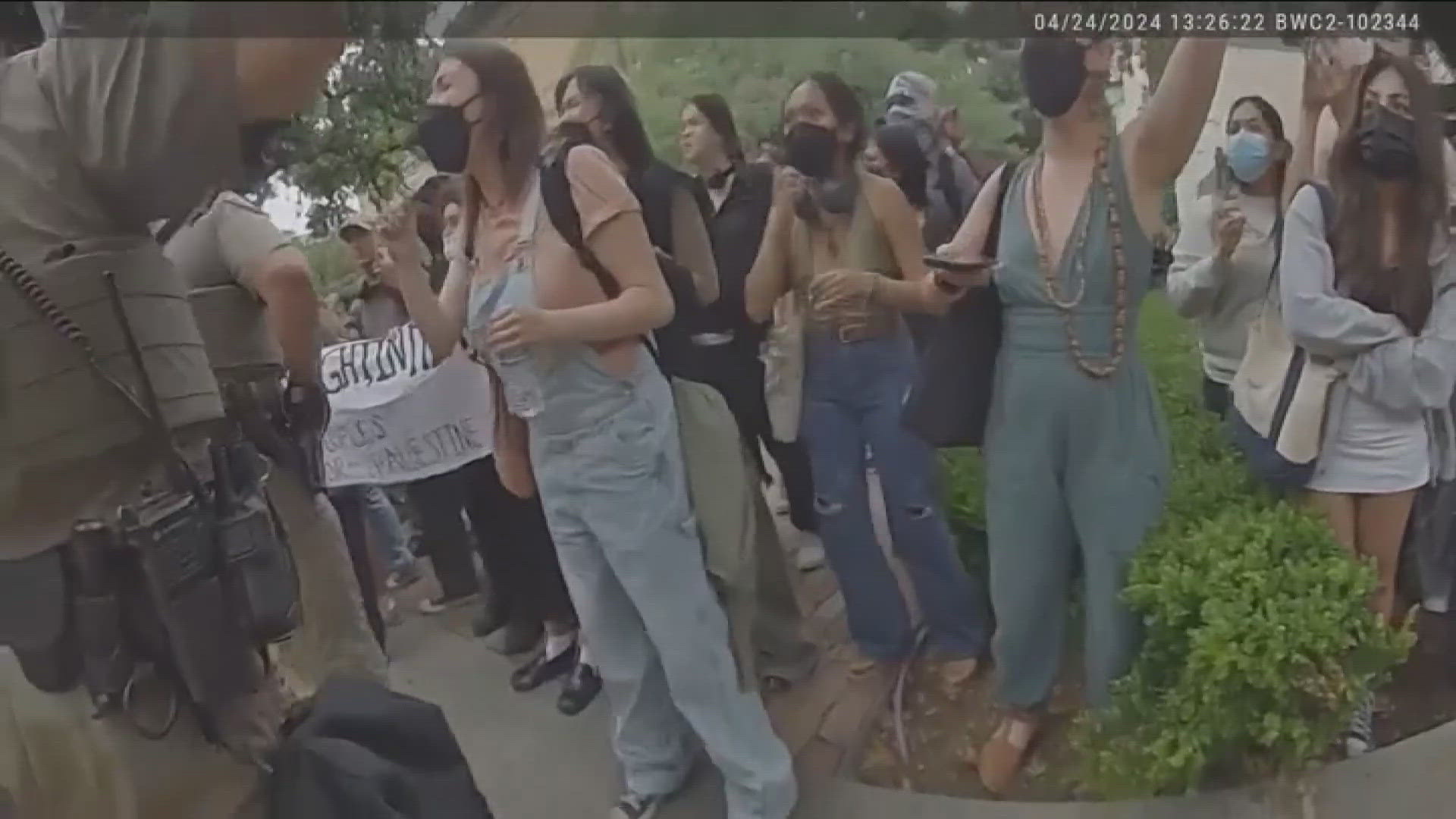AUSTIN, Texas — A report released by a committee at the University of Texas at Austin says university leaders violated their own institutional rules when contacting law enforcement in response to pro-Palestine protests in April.
According to the report, the seven-member committee also discovered the university’s claims that protesters violated rules – including the unauthorized wearing face masks – “lack[ed] adequate foundation.” The university and its police department claimed all of the violations justified arrests and student discipline.
The report was commissioned by the school's Committee of Counsel on Academic Freedom and Responsibility, which is designed to advise university administration and look into possible violations of policy. The committee includes professors from the departments of history, law and education.
The committee said the university didn't follow its own rules in response to the protests, specifically ignoring rules that preserve the right to free speech, stating that the university did not make enough of an effort to find a “cooperative resolution,” before contacting law enforcement.
They said the university administration should adopt a policy that only uses criminal charges only as a last resort, and start first with issuing citations. Another request from the committee is for UT President Jay Hartzell to establish a new process for non-violent conflict resolution when people are protesting.
The report is something Anne-Marie Jardine, who graduated from UT in the spring, would have appreciated months ago. She was arrested at the protest on April 24.
"He like, grabbed me by my waist and he twists me, and then he threw me to the ground and then he grabbed me by my hair and he dragged me for like a few yards across the lawn by my hair," Jardine said.
UT claims there were several reasons as to why they called in extra law enforcement, one being in response to a social media post from the protest organizers. The post mentioned occupying the South Lawn and verbiage similar to what happened on other college campuses. But the committee says the university acted preemptively.
In the analysis of the university's response, the committee writes: "Observing a national pattern of disruptive pro-Palestine protests, the Administration inferred that these protests were of the same nature and therefore pre-emptively sought to prevent them from going forward...What happens/has happened elsewhere should not be used as a justification for pre-emptive prohibition."
Jardine agreed with the committee's analysis.
"They did all of that because they just assumed and guessed and just decided to brutalize us because they thought," Jardine said.
The committee's report also says that Hartzell held a listening session with faculty after the April 29 protest, additionally stating that he claimed to have made the decision to call in police and subsequently stood by the move.
"It was a question of 'call the police before the event or call the police after the event had started,'" Hartzell said.
The study was commissioned after protests that occurred on campus on April 24 and April 29. More than 100 demonstrators were arrested after clashing with law enforcement between both protests. Much of the large crowd was made up of students who had walked out of class to participate.
No one who was arrested during the protests was formally charged, as prosecutors and magistrate judges found that those arrested did not meet the lowest standard to be charged.

